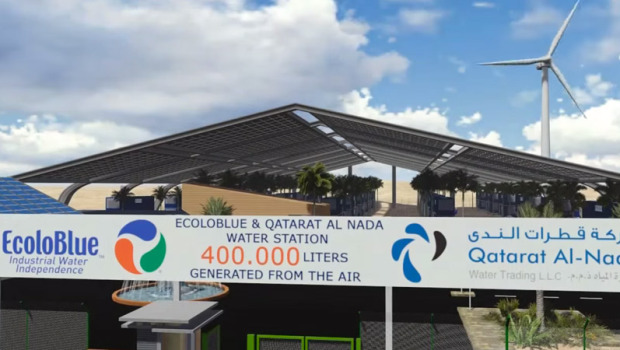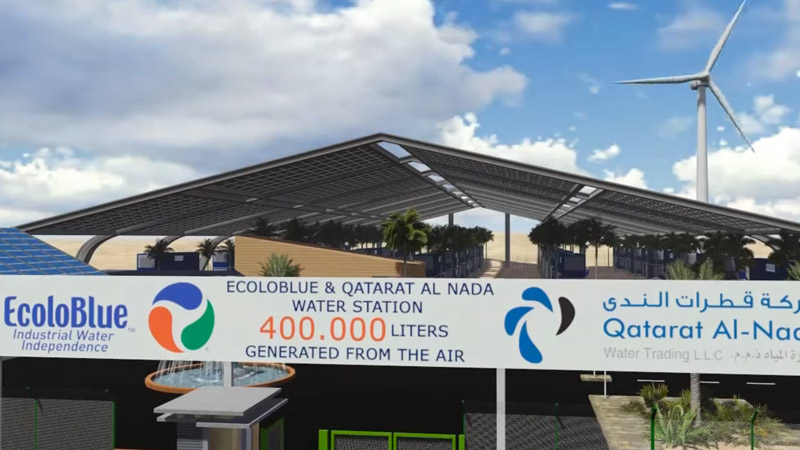A few weeks ago, we covered a company called Molecule New Water Technologies and their EcoloBlue atmospheric water generator– a product that they claimed could pull pure, crystal clear water from the ambient air around it. As I type this, the company has plans to install 52 EcoloBlue atmospheric water generators in a first-of-its-kind, solar and wind-powered “Atmospheric Water Generator Station” deep in the Qatari desert … and they expect the station to generate nearly 400,000 liters of water using the sun, wind, and humidity of the Qatar.
Per day.
Officially called the EcoloBlue & Qattarat Al Nada Water Station, the project will prove the effectiveness and energy efficiency of these generators, and also serve as a proof of concept for producing pure, ultra clean, potable drinking water far off the grid. If governments and international aid organizations like the UN and the Red Cross like what they see, water stations like these could help people developing nations- or even California!- achieve real water security.
You can learn more about the water station project by watching the video, above, and find out more about getting an EcoloBlue atmospheric water generator for your own home or business use at the Molecule New Water Tech homepage. Let us know what you think of the idea- and whether or not it’ll work!- in the comments section at the bottom of the page. Enjoy!
EcoloBlue & Qatarrat Al Nada Water Station
EcoloBlue’s new 400,000 Liter/Day Atmospheric Water Generator Station is the first of its kind in the world. We present the 3D design video of the project. Not only can EcoloBlue’s atmospheric water generators be used individually for smaller water needs, these water stations are intended for areas where the need for water is greater.
Content generously supported by Molecule New Water Technologies.


You must be logged in to post a comment.